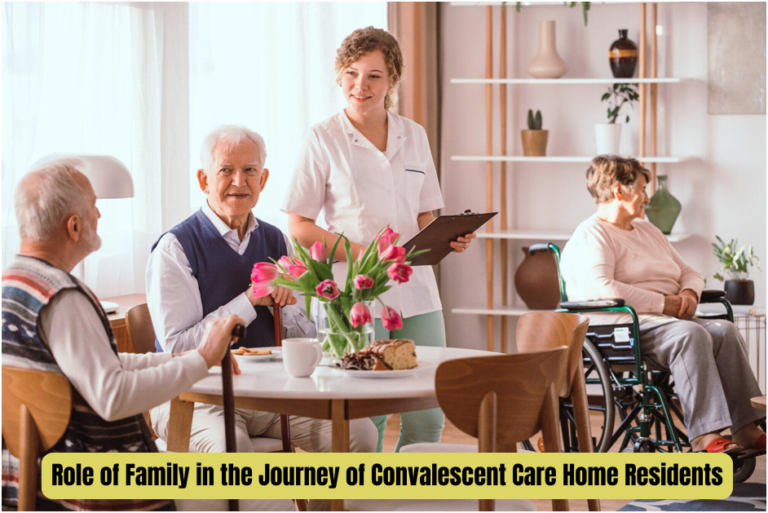The road to recovery can seem lonely at times. However, the family makes this tough time more bearable and encouraging for individuals in a convalescent care home. This blog article investigates how family participation improves the healing process. It provides useful advice and ideas for maximizing this great resource. Keep on.
Emotional Support from Family
Family members’ presence might raise the morale of inhabitants. Phone conversations, visits, and video chats provide emotional sustenance. This makes the people who live there feel loved and important. This emotional link can make you feel less lonely and hopeless, which is typical during recovery.
Encouragement and Motivation
Family members are essential cheerleaders in the recovery process. Their encouragement can motivate residents to:
- adhere to their treatment plans
- attend therapy sessions
- maintain a positive outlook
Simple acts can make a substantial difference in a resident’s progress. Such as:
- celebrating small milestones
- sharing words of encouragement
Personalized Care and Attention
Family members have deep information about the residents:
- preferences
- routines
- personality
This knowledge allows them to provide personalized care that aligns with the resident’s comfort and needs. Whether it’s:
- bringing their favorite meal
- reading their preferred books
- playing their favorite music
These small gestures contribute to a more comforting environment.
Facilitating Communication with Healthcare Providers
Families are quite important middlemen between residents and doctors. They possess:
- ask pertinent questions
- relay important information
- ensure that the resident’s needs are clearly communicated
This position is critical for advocating on behalf of citizens. It ensures they receive pleasant, viable care.
Assisting with Daily Activities
In many convalescent care homes, residents may require assistance with daily activities such as:
- dressing
- bathing
- eating
Family members can provide this help. This ensures that residents maintain their dignity and independence as much as possible. Their involvement in these routines can also make the tasks more familiar and less intimidating for the resident.
Promoting Social Interaction
Isolation can be a significant concern for residents in convalescent care. Family visits provide opportunities for social interaction. It helps residents stay connected to the outside world.
Some activities can enhance the resident’s overall well-being. Such as:
- Engaging in conversations
- sharing family news
- participating in social activities together
Providing Comfort and Familiarity
Bringing elements of home into the care environment can provide immense comfort to residents. Family members can decorate the resident’s room with personal:
- items
- photographs
- mementos
It creates a more homely and reassuring atmosphere. These familiar surroundings can enhance the resident’s sense of security and peace.
Supporting Mental Health
Mental health is a critical aspect of recovery. Family involvement can help monitor and support the resident’s mental health by recognizing signs of:
- anxiety
- depression
- cognitive decline
Families can work closely with care providers to address these issues promptly.
Enhancing Nutritional Care
Recovery depends on good nutrition, so family members can be quite helpful in making sure residents eat healthy food. They can also work with providers to accommodate dietary limitations and preferences.
Sometimes, they even prepare homemade meals that bring comfort and joy to the residents. Check out the best senior living options found here.
Visit a Convalescent Care Home Now
The importance of family involvement in the recovery of convalescent care home residents cannot be overemphasized. Their active participation, tailored attention, and emotional support are priceless tools that speed recovery.
Families can greatly improve the quality of life for their members by applying the advice above. Go now to senior care facilities!
Also Read:

